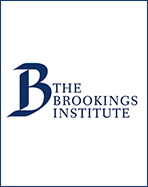European Russophobia and Europe’s Rejection of Peace: A Two-Century Failure
Europe has repeatedly rejected peace with Russia at moments when a negotiated settlement was available, and those rejections have proven profoundly self-defeating. Read more
 Issuing work permits to refugees in return for donor support for jobs is seen as a “win-win-win” for refugees, host countries, and the international community. It would stem the flow of refugees to Europe, decrease the dangers of radicalization, and prevent the exploitation of refugees as a source of cheap labor. At last February’s “Supporting Syria and the Region” conference co-hosted by the U.K., Germany, Kuwait, Norway, and the United Nations, former British Foreign Secretary David Miliband called for a million work permits to be made available to Syrians, 200,000 each in Jordan and Lebanon and 600,000 in Turkey.
Issuing work permits to refugees in return for donor support for jobs is seen as a “win-win-win” for refugees, host countries, and the international community. It would stem the flow of refugees to Europe, decrease the dangers of radicalization, and prevent the exploitation of refugees as a source of cheap labor. At last February’s “Supporting Syria and the Region” conference co-hosted by the U.K., Germany, Kuwait, Norway, and the United Nations, former British Foreign Secretary David Miliband called for a million work permits to be made available to Syrians, 200,000 each in Jordan and Lebanon and 600,000 in Turkey.
Turkey issued a decree in January 2016 allowing work permits for Syrians. Jordan also agreed to provide work permits for up to 200,000 Syrians over a number of years in exchange for aid and the opening of European markets to goods produced or special economic zones—all this to lead to jobs for one million Jordanians as well when other aid and spending is added in. Lebanon, whose fragile confessional politics makes the one million plus Sunni refugees a more palpable threat, has chosen not to issue work permits. Yet, according to the International Labor Organization (ILO), “around half of (working age) Syrian refugees are economically active and just one-third have access to overwhelmingly informal and low-skilled employment.” That’s around 165, 000 employed informally. The number is around 160,000 in Jordan with 1.3 million Syrians and over 400,000 in Turkey with 2.7 million Syrian refugees.
In Turkey and Jordan, as elsewhere, work permits are tied to employers who apply on behalf of employees once residency, registration, and health requirements are met. In both countries, employers must pay the legal minimum wage and social security payments. The permits are renewed annually. But, for the majority of Syrians working in labor markets with an abundance of local and foreign low-skill, low-wage workers, the pay is nowhere near the minimum wage. As to the promised jobs in the special zones, those will take time to materialize, and we already know that, at least in the garment sector, up to 80 percent of the workers are young women from South Asia, largely residing in dorms but at least receiving the minimum wage. Whether Syrians can adapt to this model remains to be seen. In both Jordan and Turkey, there are certain limits on the percentage of Syrians versus locals in many manufacturing and services jobs; in Jordan there is some evidence that “ghost” Jordanian workers are used to get around this requirement.
The article's full-text is available here.